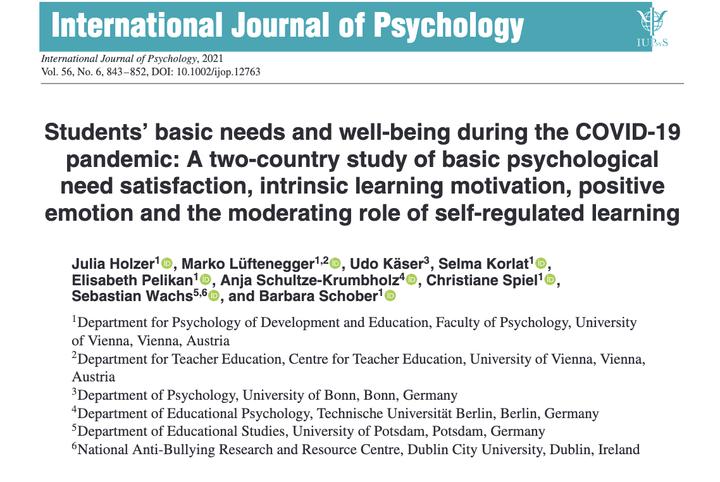Students' basic needs and well-being during the COVID-19 pandemic: A two-country study of basic psychological need satisfaction, intrinsic learning motivation, positive emotion and the moderating role of self-regulated learning

Abstract
COVID-19 and its containment measures have uniquely challenged adolescent well-being. Following self-determination theory (SDT), the present research seeks to identify predictors of well-being in terms of positive emotion and intrinsic learning motivation under distance schooling conditions and whether SDT’s core postulates hold true in this exceptional situation. Feeling competent and autonomous concerning schoolwork, and socially related to others were hypothesized to predict positive emotion and intrinsic learning motivation. The role of self-regulated learning (SRL) as a moderator was considered. Self-reports were collected from 19,967 secondary school students in Austria (Study 1) and Germany (Study 2). In both studies, structural equation modeling revealed that all basic needs predicted positive emotion, and that competence and autonomy predicted intrinsic learning motivation. Moderation effects of SRL were identified in Study 1 only: The effect of autonomy varied with the level of SRL for both outcomes and the effect of competence varied with the level of SRL for intrinsic learning motivation. The results highlight the relevance of basic psychological need satisfaction and SRL in a situation in which adolescents are confronted with a sudden loss of daily routines.